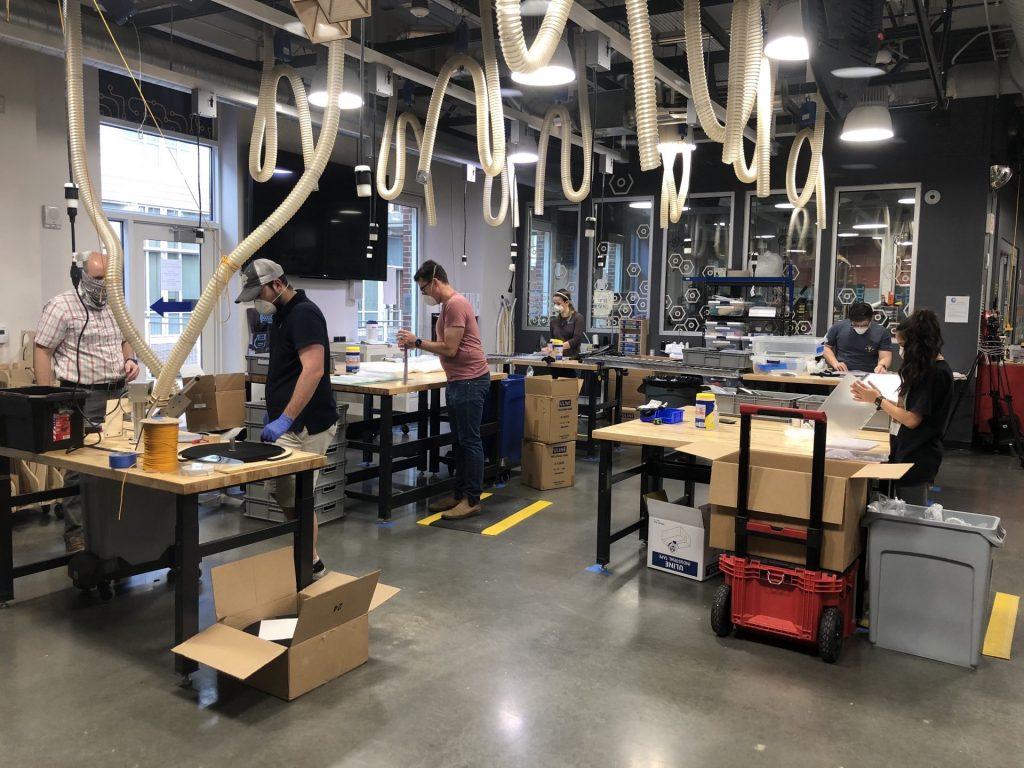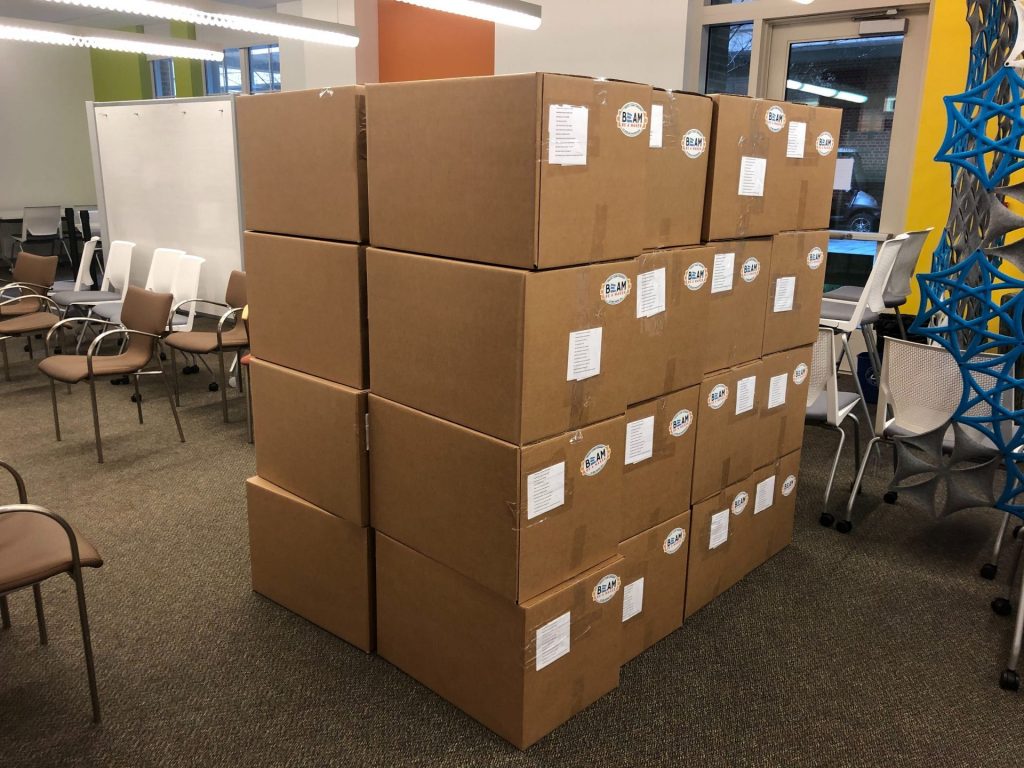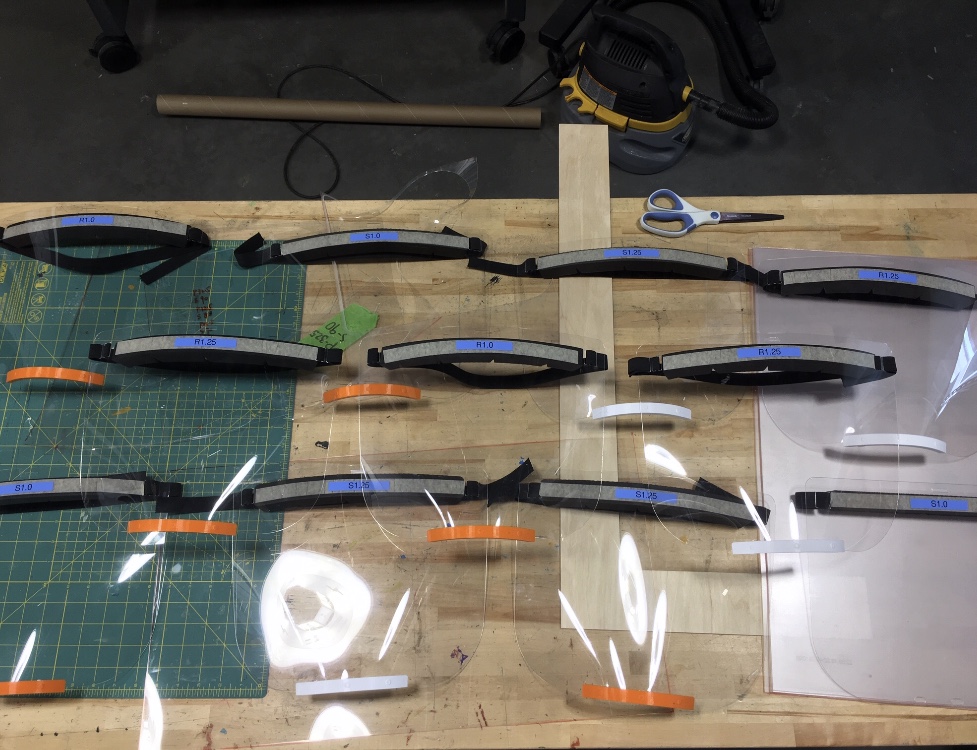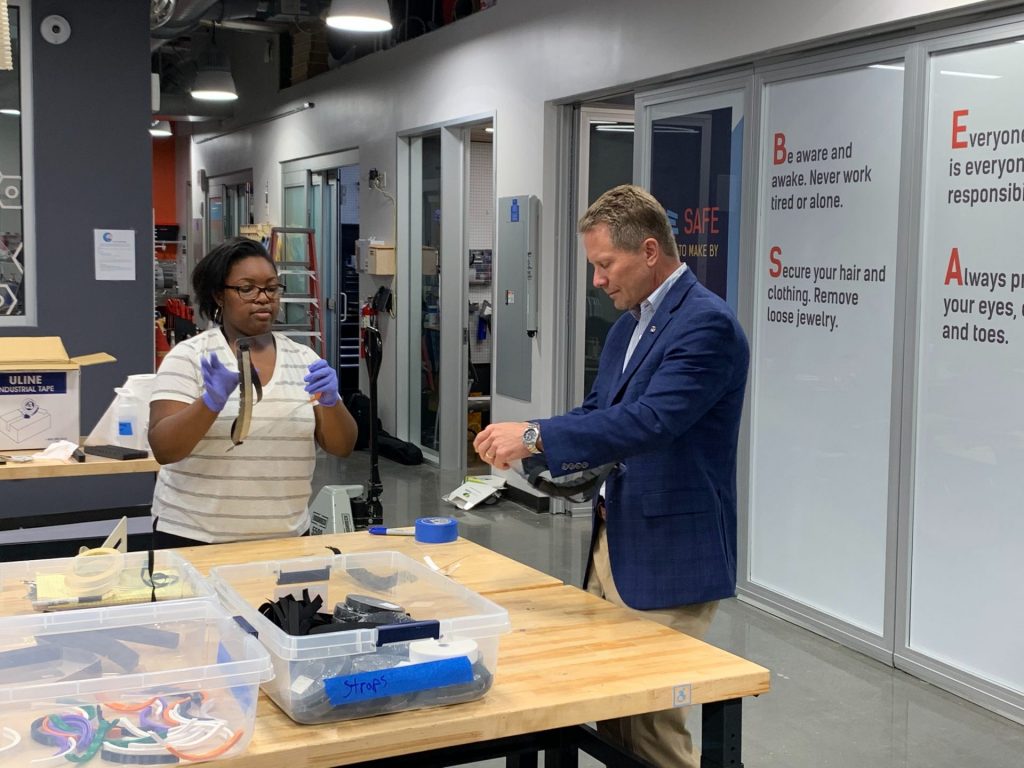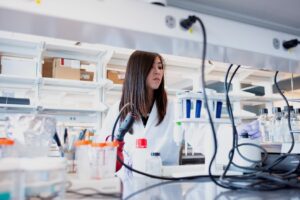Transforming a makerspace into a factory-like environment squarely focused on pumping out a high volume of medical face shields in a condensed period – while considering safety concerns involved with the virus outbreak – wasn’t an easy solution. It required inventive thinking, logistical pivoting and hard work by BeAM staff and student leaders. After all, these are places where people traditionally tinker and test ideas over time.
“A makerspace is good for making individual things, one-offs. It’s good for design and making specialized versions of things,” said Rich Superfine, the chair of the Department of Applied Physical Sciences that launched BeAM and Carolina’s Taylor-Williams Distinguished Professor. “But it’s typically not a place that makes 40,000 of something.”
That focus changed when Superfine received an early-March phone call from Carol Lewis, the vice president of the UNC Center for Health Innovation who is leading a working group focused on PPE. Superfine said that after his conversation with Lewis, the next step for the BeAM group was clear. “She called and said it’s time to fire up the engine, so that’s what we did,” he said.
To get geared up, Superfine enlisted the expertise of Glenn Walters from the applied physical sciences department, Kenny Langley, who is the director of the BeAM makerspaces, and a host of other staff and student volunteers. Walters got to work designing and testing the face shields in consultation with colleagues from NC State University, Duke University, UNC Hospitals and other organizations. Collaborators fabricated and sent numerous versions of the face shields to four different units at UNC Hospitals for testing, so that several different types of health care workers could test them and provide feedback. Medical school students collected user feedback and delivered it to the design team, including Walters and Theo Dingemans, an applied physical sciences professor who helped hone the final plans for the product.
But designing the face shields was just one part of the process. The team also worked quickly to source and specify materials, establish a manufacturing process, set up an inventory management system, recruit and organize volunteers, and make sure that the workspace was safe and efficient. The thoughtful approach taken by BeAM and student leaders from the UNC School of Medicine was obvious to Anne Cabell, who volunteered on Saturday.
“I can’t say enough about the BeAM staff and medical students running the assembly shifts. It was very apparent that the safety of the workers was first and foremost,” said Cabell, assistant director of Research, Innovation and Global Solutions at the UNC Gillings School of Global Public Health. “They really thought through every detail.”
When signing up online, volunteers answer a set of health-screening questions. Once they arrive for their actual volunteer sessions, a team of medical school students greet them in groups of five and provide a 30-minute orientation training for each four-hour shift.
As a volunteer, Cabell described details inside the workspace as being similarly meticulous. Those include everyone wearing face masks, being provided detailed laminated work protocols, and receiving instruction not to talk unless necessary to limit any droplets. Each individual volunteer becomes their own mini-assembly line, she said, building the shields at tables spread eight feet apart. When entering and leaving the space, volunteers follow tape placed on the floors, which helps them maintain a safe distance as they move. The process also involves thorough handwashing, plus disinfecting workstations each day.
Dent, who volunteered on the first day, said she appreciated the secure and well-planned environment created by Langley and Demitra Canoutas, a medical student and lead volunteer coordinator working with BeAM to make the response effort a reality.
“The initiative is very well organized and implemented, and a great example of collaboration between departments and schools on campus,” said Dent, who said she hopes to return to volunteer again. “Demi and Kenny created a safe, supportive and motivating atmosphere. With their help, I was able to assemble 100 shields during my shift, and all volunteers had a similar output.”
The face shields produced by the volunteers are already being added to the equipment supply inventory at a UNC Hospitals warehouse, so they can be distributed to health care workers in various locations when needed, if standard PPE supplies run out.
Knowing that it’s possible to make that kind of immediate impact inspires volunteers to sign up and actively make a dent in the coronavirus problem.
“When I read about the request for volunteers, I was really excited to help out in some way other than sheltering in place,” Cabell said. “I also kept thinking about the health care workers and all the support people who are on the front lines of this every day. That really helped put it in perspective for me. It’s the least I can do.”
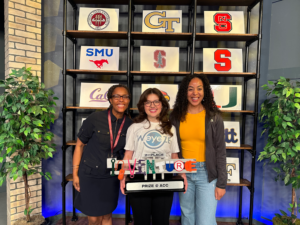

 | UNC-CH
| UNC-CH
